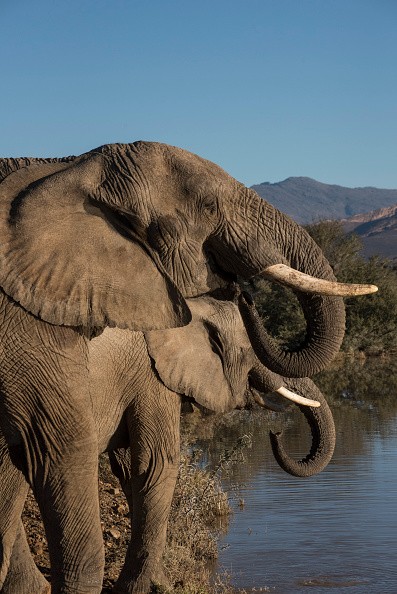While elephants have more body cells than humans increasing the possibility of being more prone to getting cancer, the largest land mammal is less likely to get cancer. A study of why the elephant are less prone to the deadly disease could lead to new ways of protecting people from cancer.
New genetic studies reveal that Elephants' cell has 40 copies of modified gene p53, commonly called a tumor suppressor. On the contrary, human beings possess just two in each cell, one from each parent.
The modified genes or otherwise alleles, can damage cells to either repair themselves of self-destruct when exposed to carcinogenic substances, according to a study in the Journal of American Medical Association via JamaJama Network.
Even though the results cannot attribute elephants' resistance to the extra genes along, proving the findings could open ways for possible drugs for humans that could copy the effect.
Co-senior author Joshua Schiffman, M.D., of the Huntsman Cancer Institute of the University of Utah said via Eurek Alert, "Nature has already figured out how to prevent cancer. It's up to us to learn how different animals tackle the problem so we can adapt those strategies to prevent cancer in people."
The rationale behind elephants resisting cancer has long been shocking to scientists. Elephants possess 100 times the number of cells than humans, implying that they should be 100 times vulnerable to developing cancer at some point in their long, human-like life span of 50 years to 70 years.
Previous studies revealed that elephants have a cancer mortality rate below 5 percent, as opposed to humans with 11 to 25 percent.
After collecting white blood cells from elephants during random health checks and subjecting the cells to treatment to destroy their DNA that can trigger cancer, the cells responded to the DNA damage with common response perceived when p53 is involved. They committed suicide according to the findings of researchers.
Schiffman said, "It's as if the elephants said, 'It's so important that we don't get cancer, we're going to kill this cell and start over fresh."
The scientist explained that the impaired cells, if destroyed, cannot change into a cancerous cell.
He concluded that this may turn out more efficient an approach to cancer prevention as opposed to stopping a mutated cell from multiplying and failing to completely repair itself.
He added, "We think that making more p53 is nature's way of keeping this species alive."



























